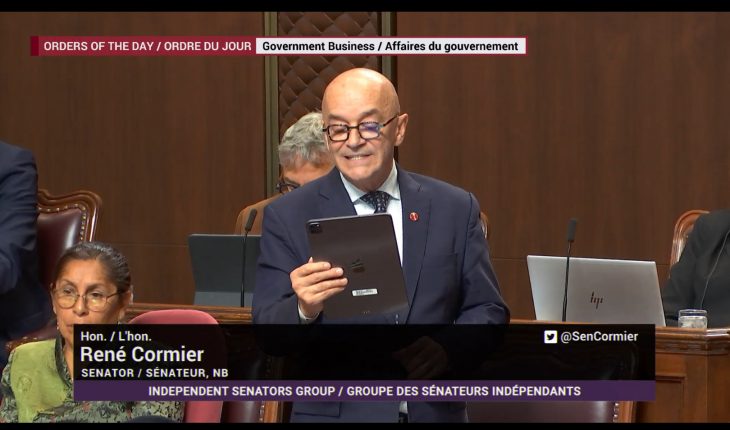
By Christopher Guly
OTTAWA – As bill C-11 returns to the House of Commons after passing the Senate late Thursday, the industry affected by the online streaming legislation has called on the federal government to ensure the establishment of equal treatment between foreign and Canadian companies toward Canadian content requirements.
“We are very concerned that a provision, which remains in the bill, creates a two-tier system that will hold foreign streamers to a lower standard than Canadian companies,” said the Canadian Media Producers Association (CMPA) in a statement today. “This will result in foreign streamers using fewer Canadian creators in the production of Canadian programming, which undermines Minister [Pablo] Rodriguez’s stated mission to level the playing field.”
The CMPA said that “this flaw must be addressed in the pending policy direction to the CRTC, or damage to Canada’s cultural industry may be permanent and irreversible.”
The Writers Guild of Canada (WGC) similarly claimed in a statement today that the provision creates a different system for Canadian and foreign companies.
If unchanged by the House, “Canadian creators, such as screenwriters, are at serious risk of being minimized or even cut out of the system entirely, as foreign streamers continue to dominate the Canadian broadcasting landscape,” said the WGC.
Acting co-executive director Neal McDougall added that the WGC expects the federal government to ensure that the Canadian Radio-television and Telecommunications Commission “holds streamers to account when it comes to creating opportunities for Canadians to tell our own stories.”
During third reading, Senator Rene Cormier stated that he introduced an amendment to “offered a solution in uniformizing the criteria on the human resource utilization while leaving flexibility to the CRTC in its application.
“This amendment was unfortunately not approved by the committee.”
Bill C-11 was also top of mind at the CMPA’s annual Prime Time conference in Ottawa, where Reynolds Mastin, president and CEO of the CMPA, zeroed in on the “balancing act” involved in the Online Streaming Act in his opening remarks at the industry gathering on Thursday, and highlighted how fair play could turn off the tap to a talent drain that “increasingly flows in one direction: south.
“It not only sucks up our best creative and producing talent, but all the revenues from the IP [intellectual property] that is developed and produced here in Canada,” said Mastin. “We end up working in a country where stories are owned and told by American companies.”
“But if we get this right” with bill C-11, he said, “that pipeline flows in both directions.
“Imagine a world where we not only retain the next generation of creators and producers, but we begin repatriating those who left Canada for Hollywood because bill C-11 has given them a reason to come home.
“That world,” added Mastin, “is within our grasp.”
The tension point lies in a provision within C-11 that will require “each Canadian broadcasting undertaking” to “employ and make maximum use, and in no case less than predominant use, of Canadian creative and other human resources in the creation, production and presentation of programming,” while “each foreign online undertaking” would only be asked to “make the greatest practicable use of Canadian creative and other human resources.”
Film and television industry veteran Michael MacMillan, co-founder and CEO of Blue Ant Media who was part of the opening panel at Prime Time, said that he hoped the House would address that “worrisome” difference that could end up as a directive to the CRTC.
He also questioned why the Senate removed a provision within the bill that would have promoted the creation of Canadian programming “by all Canadian producers,” including broadcasters – that hybrid space Blue Ant occupies, resulting in “a direct assault on our capacity to be a producer who also happens to be a broadcaster.
“This struck me as a very difficult suggested change considering that we have to be nimble and ready to embrace new change in our economy and in our industry in the years ahead,” said MacMillan, who said that not encouraging content creation from companies like his to serve as both producer and broadcaster is “nutty.”
On the other hand, Mastin said that the Senate restored an objective of the Broadcasting Act to, as the bill reads, require “the greatest possible contribution from the Canadian production sector, whether it is independent or affiliated with or owned by a broadcasting undertaking.
“We did everything in their power to persuade them to do so,” he explained. “The reason for that was it is the one place in the Broadcasting Act that specifically identifies the contribution and valuable role of the independent production sector, so we did not risk seeing that being diluted.”
Jeanette Patell, head of government affairs and public policy for YouTube in Canada who also participated in the opening panel discussion at Prime Time, expressed concern that under C-11, the CRTC will be afforded “vast” and “expansive powers over a great deal of content.”
She said that “audience behaviours and preferences” are also not reflected in the proposed legislation.
Fellow panelist Barbara Williams, executive vice-president of CBC, focused on the long timeline involved in amending the Broadcasting Act, which the federal Liberals first attempted to do with bill C-10 in late 2020, to C-11, which, once granted royal assent, will go to the CRTC in the form of ministerial directives before a public consultation on proposed regulations begins.
“I’m concerned that as every day goes by, our industry is being potentially hurt and hampered more and more,” she said.
“It is about the definition of CanCon [Canadian content] – that to me is the root of everything,” said Williams, who highlighted that the focus should be on preserving Canadian IP to avoid the “exploitation of content” while providing “access to funds that support that content.”
With a file from Denis Carmel



